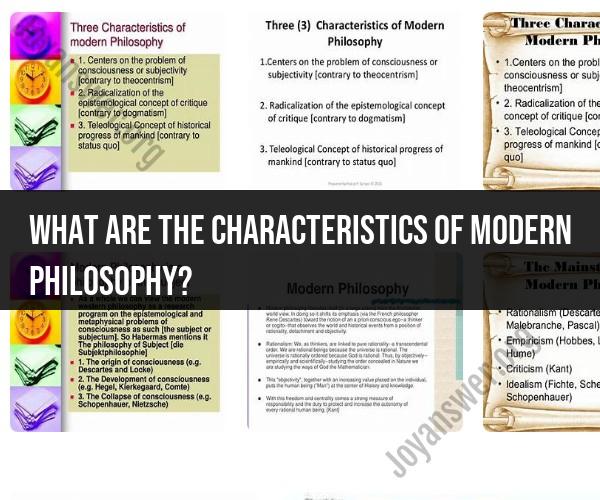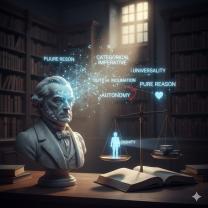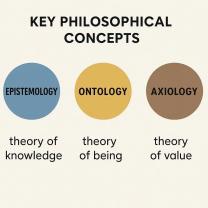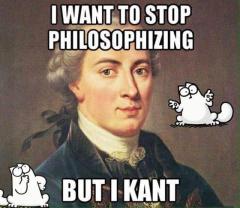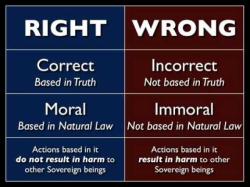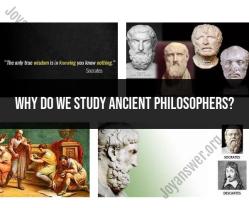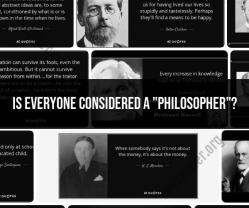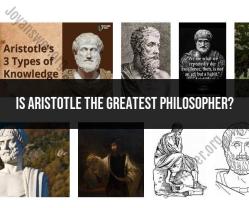What are the characteristics of modern philosophy?
Modern philosophy, often considered to have its roots in the 17th century and extending into the 18th and 19th centuries, is marked by several defining characteristics. These characteristics distinguish it from earlier periods of philosophy, such as the medieval and ancient eras. Here are some key traits and characteristics of modern philosophy:
Empiricism and Rationalism:
- Modern philosophy witnessed a shift toward empiricism and rationalism as dominant philosophical approaches.
- Empiricism, championed by philosophers like John Locke, George Berkeley, and David Hume, emphasizes the role of sensory experience and observation as the foundation for knowledge.
- Rationalism, advocated by figures such as René Descartes, Baruch Spinoza, and Gottfried Leibniz, asserts the primacy of reason and deductive logic in the pursuit of knowledge.
Individualism and the "Cogito":
- The modern period placed a strong emphasis on the individual thinker and the individual's capacity for reason.
- René Descartes' famous statement "Cogito, ergo sum" ("I think, therefore I am") epitomizes this focus on the individual's capacity for self-reflection and autonomous thinking.
Secularism and the Separation of Church and Philosophy:
- Modern philosophy saw a distancing of philosophical inquiry from religious authority.
- Philosophers increasingly sought to ground their theories in reason and empirical observation rather than relying solely on religious doctrine.
Scientific Revolution Influence:
- The rise of the scientific method and the achievements of scientists like Isaac Newton influenced modern philosophy.
- Philosophers like Descartes and Leibniz attempted to provide a rational foundation for the natural sciences and the mathematical principles underlying them.
Epistemological and Metaphysical Inquiry:
- Modern philosophy explored fundamental questions about knowledge, reality, and the nature of existence.
- Philosophers engaged in epistemological debates about the sources and limits of human knowledge and metaphysical inquiries into the nature of reality, causation, and substance.
Political Philosophy and Social Contract Theory:
- Modern philosophy made significant contributions to political philosophy and the development of social contract theory.
- Thinkers like Thomas Hobbes, John Locke, Jean-Jacques Rousseau, and Immanuel Kant explored questions about the nature of government, the social contract, and individual rights.
Ethical and Moral Philosophy:
- Ethical philosophy remained a central concern of modern philosophers.
- Philosophers like Immanuel Kant developed deontological ethics, which emphasized moral duties and principles, while others, like Jeremy Bentham and John Stuart Mill, contributed to the development of utilitarian ethics.
Critique of Tradition and Skepticism:
- Modern philosophy often involved critical examination of traditional philosophical and religious doctrines.
- Philosophers like David Hume raised skepticism about the reliability of human knowledge and the foundations of metaphysical claims.
Development of Modern Language and Terminology:
- Modern philosophy led to the development of modern philosophical language and terminology.
- Philosophers developed new concepts and terminology to address the philosophical issues and ideas of the era.
Historical Context and Cultural Shifts:
- Modern philosophy was shaped by the historical and cultural context of the time, including the Enlightenment, the Scientific Revolution, and the changing social and political landscape.
These characteristics collectively define modern philosophy as a period marked by a departure from earlier philosophical traditions, a focus on individual reason and empirical inquiry, and an engagement with a wide range of philosophical questions across various disciplines. The period of modern philosophy had a profound and lasting impact on the development of contemporary thought.
Modern Philosophy Characteristics: A Contemporary Overview
Modern philosophy is characterized by a number of key features, including:
- Rationalism: Modern philosophers emphasize the importance of reason in understanding the world and our place in it.
- Individualism: Modern philosophers place a high value on the individual and their freedom and autonomy.
- Skepticism: Modern philosophers are skeptical of traditional beliefs and authorities, and they encourage us to question everything.
- Progress: Modern philosophers believe that progress is possible, both for individuals and for society as a whole.
Key Features of Philosophy in the Modern Era
Here are some key features of philosophy in the modern era:
- Focus on epistemology and metaphysics: Modern philosophers are particularly interested in questions about knowledge and the nature of reality.
- Development of new philosophical systems: Modern philosophers have developed a number of new philosophical systems, such as rationalism, empiricism, and idealism.
- Engagement with scientific and social issues: Modern philosophers are often engaged with scientific and social issues, such as the ethics of artificial intelligence and the nature of social justice.
The Evolution of Thought: Characteristics of Modern Philosophical Thinking
Modern philosophical thinking has evolved over time, but it has retained some core characteristics. One of the most important characteristics of modern philosophical thinking is its emphasis on reason. Modern philosophers believe that reason is the best way to understand the world and our place in it.
Another important characteristic of modern philosophical thinking is its individualism. Modern philosophers place a high value on the individual and their freedom and autonomy. They believe that individuals have the right to think for themselves and to make their own choices.
Modern philosophers are also skeptical of traditional beliefs and authorities. They encourage us to question everything, including our own beliefs. They believe that the only way to make sure that our beliefs are true is to subject them to critical scrutiny.
Finally, modern philosophers believe that progress is possible, both for individuals and for society as a whole. They believe that we can learn from our mistakes and improve our lives and our world.
Here are some examples of modern philosophers and their key ideas:
- René Descartes: Descartes was a French philosopher who is considered to be the father of modern philosophy. He is known for his emphasis on reason and his attempt to develop a foundation for knowledge.
- John Locke: Locke was an English philosopher who is known for his theory of empiricism. He believed that all knowledge comes from experience.
- David Hume: Hume was a Scottish philosopher who is known for his skepticism. He argued that we can never know anything for certain.
- Immanuel Kant: Kant was a German philosopher who is known for his work on epistemology and ethics. He argued that we can know certain things about the world, but that there are also limits to our knowledge.
- Friedrich Nietzsche: Nietzsche was a German philosopher who is known for his critique of traditional morality and his emphasis on the individual.
These are just a few examples of modern philosophers and their key ideas. Modern philosophy is a rich and diverse field, and there are many other important philosophers and ideas that could be discussed.
